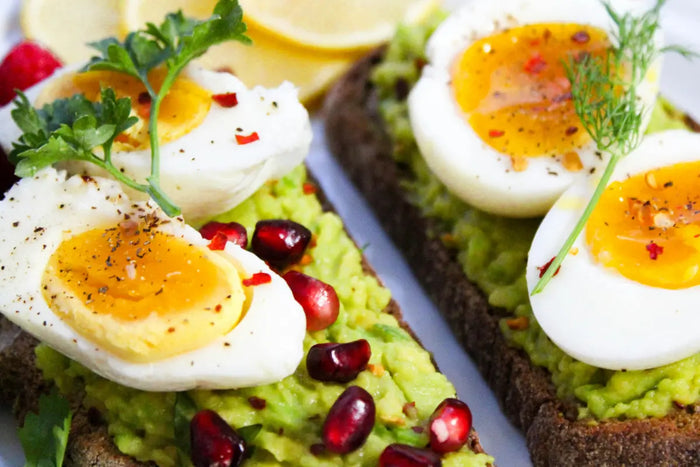Uh oh, it’s that time of day again. Whether your weakness is the 11am sugar cravings, the mid afternoon stomach grumbles that demand junk food or that post-dinner feeling of needing something sweet to finish off your day, food cravings can be a real issue if you’re trying to shape up for summer, be mindful of your diet or are sticking to a fitness regime.
Common targets include salt cravings and sugar cravings - but don’t worry, because we’re going to teach you the best ways to manage food cravings, those pesky desires which could be the thing standing between you and your ideal diet and body.
What are food cravings?
Cravings for food are intense, sometimes uncontrollable desires for specific food. Different to everyday hunger, they tend to be mental as opposed to physical cravings for food. They’re often linked to memory, as when we eat a food we enjoy, it gains a positive association in our mind. When this happens, it can affect how good we think it tastes and how good it makes us feel, and the more we eat of that specific food, the stronger these associations become. This means that a feeling, place or smell can induce a food craving. If you’ve ever had a bad day at work and found yourself craving the dish your mum would make for you after a rough day at school 9and who hasn’t?), you’ll know exactly how this feels.
There’s also a physiological aspect to food cravings, as they’re linked to reward centres located in the brain. Carb, sugar or salt-heavy foods such as fizzy drinks, crisps and sweets trigger signals in these reward centres, which makes our brains crave them more and more. This means that whenever you eat foods such as these, not only do you get the physical satisfaction of eating them but your brain rewards you for doing so.
Cravings aren’t inherently bad, and there’s nothing wrong with indulging them once in a while - after all, a little bit of what you fancy does you good. However, if you’re craving junk food that’s processed and high in sugar and salt very often, or if you believe that your cravings are preventing you from achieving your fitness goals, there are some great ways to beat them.

Eat more protein
One of life’s essentials, eating more protein helps keep you full and satisfied for longer. In the long term, this will reduce your appetite and help to stop you from overeating. When a study shows that when overweight men increase their protein intake to 25% of their calories, their cravings are reduced by 60%, you know that eating more protein is a good idea for cutting down on those cravings.
Drink more water
The sensation of thirst can often be confused with the feeling of hunger. When you find yourself craving a specific food, try drinking a full glass of water, waiting a few minutes and seeing if the cravings fades away - if it does, it’s because your body needed water, not food. This has the added benefit of ensuring that you’re properly hydrated and when water is drunk before meals, may even help with weight loss, as shown in a study with middle aged people and older.
Walk away from the craving
If nothing else is doing the trick, walking away from your craving is one way to beat it. Try taking a shower, going out for a walk or watching your favourite TV show. By distracting your mind and body, you’ll reduce the feeling that you want food.
Don’t get too hungry
When you’ve ravenous, it can be hard to think straight. And when you’re really, really hungry, it will be much harder to walk away from a food craving, or choose something healthier to eat instead. To avoid this, try keeping healthy snacks such as nuts, fruit or one of our protein shakes around and eating small snacks regularly. By being prepared, you’re stopping cravings before they even start.
Meal plan
On the subject of avoiding extreme hunger, meal planning is a practical way to reduce food cravings. By knowing what you’re going to eat, you eliminate spontaneity and uncertainty, and provide comforting structure. You’ll also be far less tempted to eat crisps for dinner if there are prepped ingredients waiting for you in the fridge.
Cut down on stress
It’s been shown that stress can induce food cravings and influence how we eat for the worse. Additionally, stress raises cortisol levels, which is a hormone which can make you gain weight, particularly in the stomach area. Planning ahead, getting enough sleep and exercising frequently are all ways to reduce the amount of stress in your life and relax more, which will reduce the likelihood of you experimenting food cravings.


















